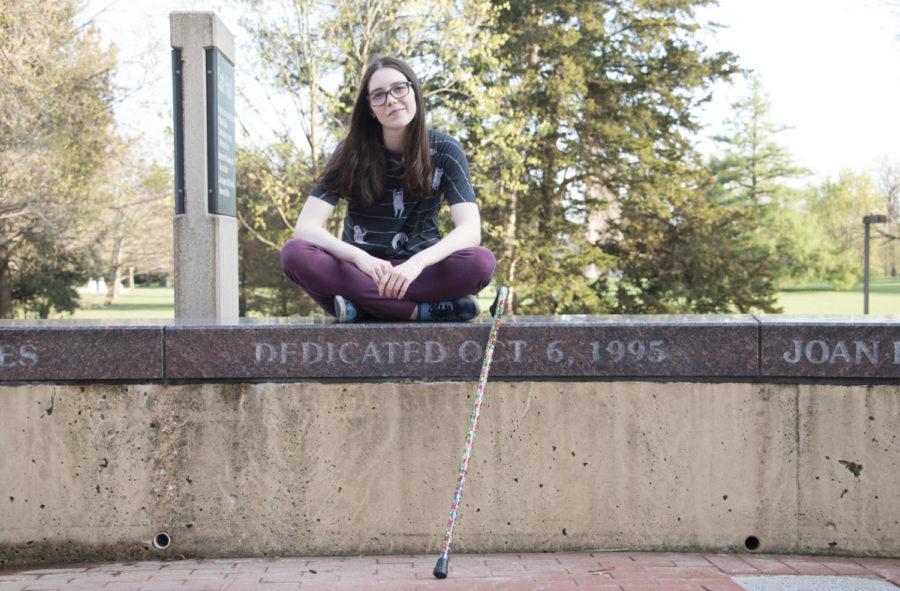Salo: End disability stigma
Emily Blobaum/Iowa State Daily
Just over four years ago, Laura Wiederholt, senior in biology, was diagnosed with Dysautonomia, a condition that affects her autonomic nervous system. Weiderholt is the president of the Alliance for Disability Awareness, a group that aims to raise awareness of different disabilities.
October 16, 2017
Disability Awareness Week, which started Monday, is a week of education for all Iowa State students. It’s important to educate able-bodied students not only on what it’s like to live with a disability but also on how to treat all students, including those with disabilities.
When I think of someone who is disabled, I immediately think of someone in a wheelchair or who is blind. But, there are many different classifications of disabilities that people all over the world, including Iowa State’s campus, live with everyday.
Disabled World defines a disability as “a condition or function judged to be significantly impaired relative to the usual standard of an individual or group. The term is used to refer to individual functioning, including physical impairment, sensory impairment, cognitive impairment, intellectual impairment, mental illness, and various types of chronic disease.”
And although it may seem like disabilities don’t affect many, according to the American Community Survey, about 12.6 percent of the U.S. population were living with a disability in 2015.
It is important for everyone to be aware that these people are all around us as classmates, professors and community members, but it’s more important for everyone to know how to treat those with disabilities: in the same way as everyone else.
The Daily put together a video of disabled students, alumni and retired professors explaining what they wished able-bodied people knew about their disabilities. The main message appeared to be that although they are different than able-bodied people, they aren’t helpless.
“Yes, I’m blind, but I don’t need you to drag me across the street. I don’t need you to cut my meat at a restaurant,” Lauren Berglund, junior in child, adult and family services, said in the video.
We also need to treat those with invisible disabilities the same way that we treat those with physical disabilities, or ones that we can see.
Would you accuse a blind person of faking their blindness? Or tell someone in a wheelchair to get over it and just stand up? No, so why would you tell someone with depression to just stop being sad? Or someone with a learning disorder to just try harder?
“At this point, I think fighting for acceptance is much more important, and that’s something that the general public can get involved in,” Laura Wiederholt, senior in biology, said in the video. “Sure it would be great if eventually we could fix this issue, but in the meantime, why don’t we make it easier for the people who are living with it?”
As Wiederholt said, as Iowa State community members, we need to work toward acceptance of those with disabilities. In order to do that, we need to stop treating those with physical disabilities like they’re helpless and stop treating those with invisible disabilities like they’re lying.
Use this week as an opportunity to educate yourself through the events set up by Iowa State and to do your part in making our campus a more welcoming place for everyone, no matter their abilities.







